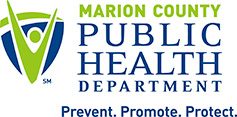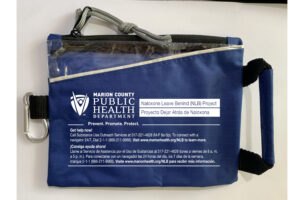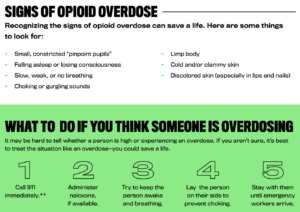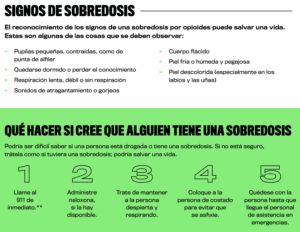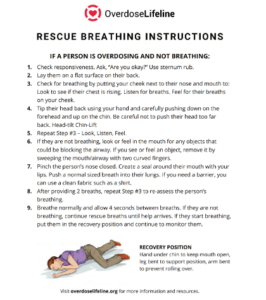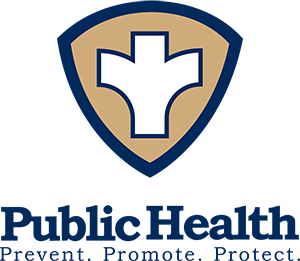What is the Naloxone Leave Behind (NLB) Project?
The Naloxone Leave Behind (NLB) Project initiative is a collaborative effort between the Marion County Public Health Department and the Indianapolis Emergency Medical Services (IEMS) team. Starting in February 2025, this project will also expand to include the Indianapolis Fire Department (IFD). This initiative allows first responders to leave naloxone on-site with patients who experience a suspected overdose and their support network.
Studies indicate that individuals who have survived an overdose are at a substantially elevated risk of experiencing a fatal overdose in the future. To mitigate this risk, EMS personnel can play a crucial role by directly providing naloxone kits to at-risk patients and their family members, friends, and roommates.
Source: https://health.maryland.gov/pha/NALOXONE/Pages/EMS-Naloxone-Leave-Behind.aspx
Do you have thoughts or feedback on the Naloxone Leave Behind Project? Please take 1-2 minutes to complete this survey: https://redcap.link/NLBkit
What is Included in the NLB Kits?
The Naloxone Leave Behind pouches will include:
· One dose of intranasal naloxone
· Resource card with a QR code to the NLB webpage and phone support by dialing 2-1-1
· Info on Overdose Lifeline’s CHARIOT Program and how to get text alerts for urgent changes in the local drug supply
. Educational materials on recognizing an overdose, and administering naloxone
If you have questions or comments about the Naloxone Leave Behind Project, contact us at epidemiology@marionhealth.org.
How to Recognize and Respond to an Opioid Overdose
**Aaron’s Law helps protect a person who is overdosing or the person who called for help from legal trouble.
Source: https://www.cdc.gov/stop-overdose/caring/naloxone.html
How to administer naloxone
Click on the video link to learn more about how to respond to an overdose event and administer naloxone.
Narcan Training Video: English/Spanish
Narcan Quick Start Guide: English/Spanish
Rescue Breathing Instructions and Recovery Position
Source: https://www.overdoselifeline.org/wp-content/uploads/2022/03/Rescue-Breathing-example-1-1.pdf
Additional Resources for Patients and their Support Network
· Safe Syringe Access & Support (SSAS) offers the following services: HIV and hepatitis C rapid screening, safer drug use practices, naloxone, fentanyl and xylazine test strips, rescue breathing mouth shields, peer support, referral for SUD and mental health treatment, wound care education, immunizations, referral to primary care, and access to health insurance coverage. Visit their website to see their available hours and locations.
· Substance Use Outreach Services (SUOS) offers the following services: HIV rapid testing, STD screenings, Hepatitis B & C screenings, HIV/STD educational materials and prevention counseling, group educational sessions, naloxone training and education, and substance use case management. Call (317) 221-4628 to learn more and get connected (M-F 8a-5p).
· Indiana Naloxone Boxes & Distribution Centers is an interactive map showing NaloxBox locations and naloxone distribution centers around Indiana.
· Never Use Alone Hotline offers overdose prevention, detection, life-saving crisis response, and medical intervention services for people who use drugs while alone. Never Use Alone peer operators are available 24-hours a day at 877-696-1996. (https://neverusealone.com/)
· Naloxone Request & Report offers harm reduction materials by mail. Fill out a request form to receive naloxone, as well as fentanyl and xylazine test strips.
· Overdose Lifeline’s CHARIOT Program: The Community Harm Reduction and Improved Outcomes Team (CHARIOT) is a community-based program aimed at preventing overdose deaths before they occur by analyzing drug seizure, bad batch, and overdose spike reports to direct harm reduction services to the affected areas
· Indiana 2-1-1 is a free and confidential service that helps Hoosiers across Indiana find the local resources they need. Dial 2-1-1 to connect with a navigator 24 hours/day.
· Shatterproof Treatment Atlas is a tool to help people find addiction treatment options that meet their needs. Answer a few questions to find specific treatment centers to help you achieve your substance use goals or search for all options by location.
· Recovery Assist Platform is a searchable online directory of providers and resources in Marion County related to overdose prevention, SUD, and other social determinants of health.
· Marion County Coroner’s Office (MCCO) Resource Center provides various resources to help people grieving the loss of a loved one. If you recently lost a loved one to overdose, you can text “mental” to 317-435-5281 to get connected with mental health resources.
· Overdose Lifeline’s Peer Grief Support Program provides direct support to individuals experiencing the challenges associated with losing a loved one from an overdose or drug-related cause of death through a network of Peer Grief Helpers.
· Lifeline for Loss is a monthly support group for anyone experiencing the loss of a loved one to drug overdose.
Important Information about Naloxone English | Spanish | Burmese | Mandarin | Hindi
- Fentanyl Education Resources Available in 13 Languages
- Opioid Prevention Campaign (English)
- Addiction Information in Other Languages (12 other languages available)
